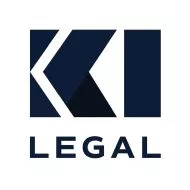The certificate of incorporation is a legal document that outlines the formation and structure of a corporation. It is a crucial document that sets forth the rights, powers, and limitations of the corporation and its shareholders. One of the most important aspects of the certificate of incorporation is the limitations on liability that it sets forth. These limitations are designed to protect the corporation and its shareholders from legal and financial liabilities.
Limitation of Liability for Shareholders
The limitations on liability set forth in the certificate of incorporation can take many forms. One common limitation is the limitation of liability for shareholders. This means that shareholders are not personally liable for the debts and obligations of the corporation. Instead, their liability is limited to the amount of their investment in the corporation. This limitation is important because it encourages investment in the corporation and protects shareholders from financial ruin in the event of the corporation's failure.
Limitation of Liability for Directors and Officers
Another common limitation on liability is the limitation of liability for directors and officers. This means that directors and officers are not personally liable for the actions of the corporation. Instead, their liability is limited to the extent of their negligence or misconduct. This limitation is important because it encourages individuals to serve as directors and officers of the corporation without fear of personal liability.
Certificate of Incorporation
The certificate of incorporation may also include limitations on the liability of the corporation itself. For example, the certificate may limit the amount of damages that can be awarded against the corporation in a lawsuit. This limitation is important because it protects the corporation from excessive damages that could threaten its financial stability. There are, however, some limitations on liability that cannot be set forth in the certificate of incorporation. For example, a corporation cannot limit its liability for intentional misconduct or fraud. Additionally, a corporation cannot limit its liability for certain types of environmental or employment law violations.
In conclusion, the limitations on liability set forth in the certificate of incorporation are crucial for protecting the corporation and its shareholders from legal and financial liabilities. These limitations encourage investment in the corporation, protect directors and officers from personal liability, and limit the liability of the corporation itself. However, there are some limitations on liability that cannot be set forth in the certificate of incorporation, and corporations must still comply with all applicable laws and regulations.
The content of this article is intended to provide a general guide to the subject matter. Specialist advice should be sought about your specific circumstances.



